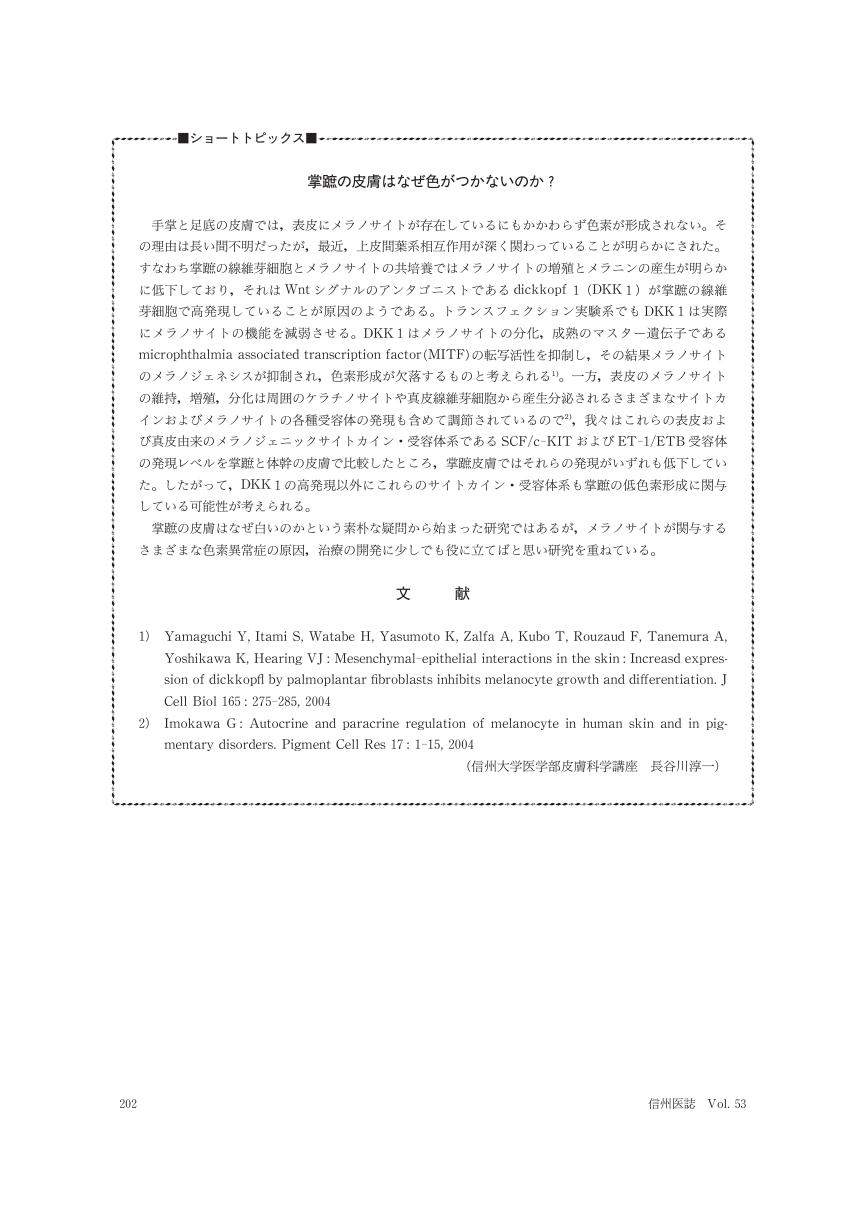9 0 0 0 OA 掌蹠の皮膚はなぜ色がつかないのか?
- 著者
- 長谷川 淳一
- 出版者
- 信州医学会
- 雑誌
- 信州医学雑誌 (ISSN:00373826)
- 巻号頁・発行日
- vol.53, no.4, pp.202, 2005-08-10 (Released:2015-07-30)
- 参考文献数
- 2
- 著者
- 長谷川 淳一
- 出版者
- 一般社団法人日本建築学会
- 雑誌
- 建築雑誌 (ISSN:00038555)
- 巻号頁・発行日
- vol.111, no.1383, pp.42-46, 1996-01-20
- 被引用文献数
- 1
1 0 0 0 IR 銀座三十間堀川埋め立て地の開発
- 著者
- 長谷川 淳一
- 出版者
- 慶應義塾経済学会
- 雑誌
- 三田学会雑誌 (ISSN:00266760)
- 巻号頁・発行日
- vol.106, no.1, pp.147-169, 2013-04
I. はじめにII. 東京温泉III. 三原橋地下街IV. むすび研究ノート
1 0 0 0 OA 1947年都市農村計画法制定期のイギリスにおける都市計画家の資格をめぐる論争
- 著者
- 長谷川 淳一
- 出版者
- 公益社団法人 日本都市計画学会
- 雑誌
- 都市計画論文集 (ISSN:09160647)
- 巻号頁・発行日
- vol.34, pp.517-522, 1999-10-25 (Released:2018-03-01)
- 参考文献数
- 33
The 1940s has been regarded as an epoch in the history of British town planning. Among other things, many imaginative plans were prepared by famous planning consultants, such as Tomas Sharp and Patric Abercrombie. Behind the scenes, however, there was a growing concern among these planners and the government about the present as well as the future of planning and planners. This led to the setting up of the committee on qualifications of planners, which aimed to introduce a new breed of planners, with little avail.
1 0 0 0 OA マルハナバチ一斉調査(第五報)
- 著者
- 保全生態学研究会 青木 俊明 荒木 佐智子 石井 潤 石濱 史子 板垣 智之 内山 武 大谷 雅人 掃部 康宏 川上 美穂子 菊地 智久 北本 尚子 清田 治樹 国武 陽子 柴田 賢一 柴山 弓季 正傳 大悟 陣田 浩次 高川 晋一 田中 肇 辻沢 央 中村 裕 長谷川 淳一 本城 正憲 牧野 崇司 松村 千鶴 松本 雅道 光井 淳之 三宅 康子 山崎 男土 山崎 義夫 柚木 秀雄 横山 潤 吉成 布美香 鷲谷 いづみ
- 出版者
- 一般社団法人 日本生態学会
- 雑誌
- 保全生態学研究 (ISSN:13424327)
- 巻号頁・発行日
- vol.7, no.1, pp.19-23, 2002-09-30 (Released:2018-02-09)
- 参考文献数
- 4
- 被引用文献数
- 2
- 著者
- 長谷川 淳一 市橋 秀夫
- 出版者
- 社会経済史学会
- 雑誌
- 社會經濟史學 (ISSN:00380113)
- 巻号頁・発行日
- vol.67, no.6, pp.689-704, 2002-03-25
Until the late 1980s, the British Labour Party under the leadership of Gaitskell and Wilson was perceived to have been much less successful than the Party had been under Attlee. But in recent years, with the emergence of 'New Labour', more sympathetic analyses have gained ground. This article will reassess the various interpretations through surveying both old and recent writings on the Labour Party of the 1950s and 1960s. In particular, we will look closely at the much questioned attempts by Gaitskell and Wilson to modernise the Party : the removal of Clause IV, the widening of the Party's electoral appeal, and the modernising of Britain through a 'scientific revolution'. Overall, faced by the increased affluence of the 1950s and 1960s, it became more and more difficult for the Labour Party to continue an interventionist stance. On balance, we accept the view that modernising projects were inevitable and necessary. However, Labour revisionists failed to show their own coherent version of a socialist Britain. We also find some difficulty in rehabilitating Wilson and his governments. Although he successfully united the Party traditionalists and modernisers with a new vision of a socialist society, once elected his priority was to remain in office rather than to make and implement policy.

